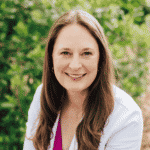by Dr. Lora Shahine
For many couples trying to conceive, getting pregnant may seem like a natural process that should happen without much effort. However, this is not always the case. When a couple has been trying to conceive for a year without any success, it may be time to seek help from a fertility specialist. The decision to see a fertility specialist can be a difficult one. Many couples may feel ashamed or embarrassed about their fertility issues, but it is important to realize that some couples need to seek further medical assistance. This blog post will discuss when to see a fertility specialist and how to find the right one for you.
When to See a Fertility Specialist
As previously mentioned, if you have been trying to conceive for a year without success, it is time to see a fertility specialist. However, there are certain conditions that may require you to see a fertility specialist earlier. These conditions include:
- Age: If you are a woman over the age of 35, it is recommended that you see a fertility specialist after six months of trying to conceive.
- Irregular periods: If you have irregular periods or no periods, it is important to see a fertility specialist.
- Previous medical conditions: If you or your partner have a history of medical conditions that can affect fertility, it is important to seek help from a fertility specialist.
- Previous unsuccessful treatments: If you have undergone several rounds of fertility treatments without success with your primary care provider or OBGYN, it may be time to see a fertility specialist.
How to Find the Right Fertility Specialist for You
Once you have made the decision to see a fertility specialist, it is important to find the right one for you. Here are some tips to help you find the right fertility specialist:
- Ask for Referrals: Ask your primary care physician for a referral to a fertility specialist. Your doctor may know of a reputable specialist in your area who can help you.
- Research: Do your own research online - websites such as FertilityIQ, offer reviews and ratings for fertility specialists in your area.
- Check Credentials: Make sure the fertility specialist you choose is board-certified in reproductive endocrinology and infertility. This certification ensures that the specialist has completed the necessary training to diagnose and treat fertility issues.
- Schedule a Consultation: Once you have narrowed down your list of potential fertility specialists, schedule a consultation with each one. During your consultation, ask questions about their experience, success rates, and treatment options.
- Consider Costs: Fertility treatments can be expensive, so it is important to consider costs when choosing a fertility specialist. Make sure to ask about the costs of consultations, tests, and treatments. You should also check if your insurance covers fertility treatments.
- Comfort Level: It is important to feel comfortable with your fertility specialist. Testing, procedures, and treatment can be emotionally and physically challenging, so you want to make sure you have a specialist you feel comfortable talking to and who understands your concerns and fears.
Conclusion
Struggling to conceive can be a difficult and emotional journey for couples, but seeking help from a fertility specialist can increase your chances of growing your family. Remember to see a fertility specialist if you have been trying to conceive for a year without success, or if you have any conditions that can affect fertility. When choosing a fertility specialist, do your research first. Ask for referrals, check credentials, schedule a consultation, consider costs, and make sure you feel comfortable with the specialist. With the right fertility specialist by your side, you can increase your chances of building the family you have always dreamed of.
Dr. Lora Shahine
 Dr. Lora Shahine, reproductive endocrinologist at Pacific NW Fertility and clinical faculty at the University of Washington in Seattle, completed her fellowship in reproductive endocrinology at Stanford University and residency in obstetrics and gynecology at the University of California in San Francisco. She is dedicated to educating and advocating for increased awareness of infertility, miscarriage, and the impact on environmental toxins on health through an active social media presence, teaching, clinical research, her books including best-selling, Not Broken: An Approachable Guide to Miscarriage and Recurrent Pregnancy Loss, and her podcast, Baby or Bust. Find her at drlorashahine.com and on Instagram, YouTube, TikTok, and Twitter.
Dr. Lora Shahine, reproductive endocrinologist at Pacific NW Fertility and clinical faculty at the University of Washington in Seattle, completed her fellowship in reproductive endocrinology at Stanford University and residency in obstetrics and gynecology at the University of California in San Francisco. She is dedicated to educating and advocating for increased awareness of infertility, miscarriage, and the impact on environmental toxins on health through an active social media presence, teaching, clinical research, her books including best-selling, Not Broken: An Approachable Guide to Miscarriage and Recurrent Pregnancy Loss, and her podcast, Baby or Bust. Find her at drlorashahine.com and on Instagram, YouTube, TikTok, and Twitter.







